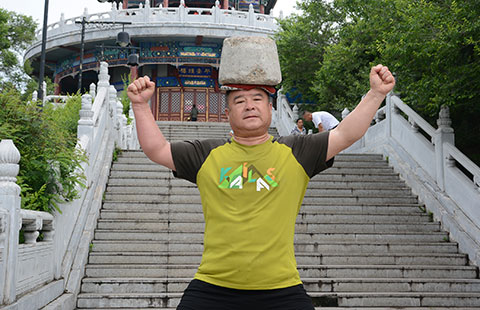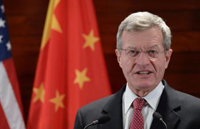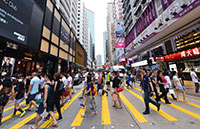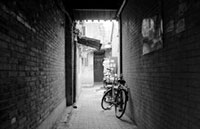Officials' trips to be placed under more public scrutiny
By YU RAN in Shanghai (China Daily) Updated: 2012-11-23 02:00Wenzhou will make public the details and expenses of Party and government employees' trips abroad on official duty, with the aim to better control the trips through public scrutiny.
Detailed regulations issued by the government of Wenzhou city, which is famous in China for its private economy, will take effect from 2013 and will make public the details of international trips taken by the city's Party and government officials.
According to the policy, 15 new rules will be implemented, offering practical solutions to monitor and regulate how officials travel abroad, which is occurring with increasing frequency because of the city's booming development.
"We're taking a brave step to implement a policy that imposes such specific restrictions on officials both before and after they travel. It places the officials under a certain amount of pressure," said Wang Huiping, director of the rectification office of the Wenzhou city discipline inspection commission.
Wang said the new rules are designed to avoid the type of corruption that occurs all over the country between officials and certain event organizers or agencies, who organize unnecessary trips using public money.
To control the frequency of official trips, lower governmental departments will have to submit applications every October for the next-year's schedule of trips, which must be approved by all related departments senior to them.
Within three days of the travel being approved, a detailed schedule, the list of participants, expenses, and the trips tasks must be posted on the website of the city's foreign affairs office and Taiwan affairs office.
The new regulations will likely instill in the public a certain confidence in local officials.
"Such publicized information will let us know more about how government officials spend public money wisely, which is a reasonable way to control corrupt behavior," said Su Xian, a 28-year-old female office worker in Wenzhou.
"Making the intended schedule of the trips public will be the first step, and the detailed reports after the trip will only be shown on the interior government website," said Wang.
In addition, officials who will retire within six months and newly appointed officials are not allowed to take any official trips in the year.
Further detailed rules relating to the regulations will be made public by the discipline inspection commission soon after the regulation is put into practice.
"We may launch more rules to monitor the officials if we encounter new problems after the implementation of the policy," said Wang.
This is not the first time the city has implemented strict regulations in regards to public expenses, which are a significant portion of the fiscal expenditure in the country.
A policy was issued in April to implement the reform of the use of government vehicles, taking away the use of chauffeur-driven cars and replacing them with a limited transportation allowance.
In May, restrictions were placed on the entertaining of visitors to the city government.
Experts said the regulations seem to be a positive step toward regulating officials and minimizing public expenses, but said it is difficult to insist officials make public all the information regarding international trips.
"It is positive that more pressure will be placed on government officials by having their expenses and schedules of international trips made public," said He Lixin, associate professor from the school of economics at Fudan University in Shanghai.
He added that the goal of the regulations is to make efficient use of government fiscal expenditures, which will be considered more thoroughly after the regulation is put into effect.
- China issues disaster alerts
- Ministry orders removal of substandard running tracks
- HK most expensive for expats
- Agency lists tiny hallway for sale: 1.5 million yuan
- Li vows to boost support for real economy
- 2020 health plan to ease burden on people in poverty
- US urged not to rock the boat by flexing its muscles
- Thousands flee their homes amid fatal downpours
- Chinese supercomputer tops list of world's fastest
- Booze banned at official banquets










